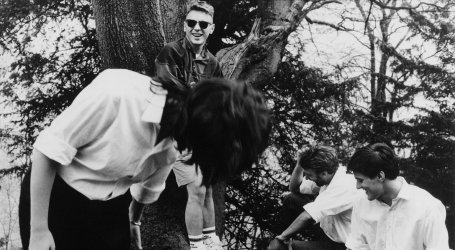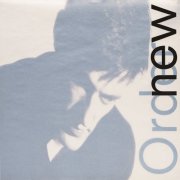 With the temperature dropping, it's time to find someone to keep you warm. Find your hookups with our online dating guide!
With the temperature dropping, it's time to find someone to keep you warm. Find your hookups with our online dating guide!
Low-life (Collector’s Edition)
- Indie/Folk
- 1985
- Buy the CD
Reviewed by David Medsker
()
It’s a given that the surviving members of Joy Division would need some time to forge their own path following the death of Ian Curtis; they were used to playing in a particular way, and the addition of Gillian Gilbert on keyboards (girlfriend of drummer Stephen Morris) was not going to radically change the way Morris, Barney and Hooky approached songwriting. She would have to pay her dues, and those dues began to bear fruit on this, the band’s third album. Indeed, Gilbert is front and center for the album’s two show-stopping moments, "The Perfect Kiss" and "Elegia." The former is one of those landmark man-meets-machine moments in music history, as well as one of the first songs to bring sampling technology to the forefront (that would be the chorus of frogs towards the end). The latter, along with singlehandedly inspiring roughly a hundred Cure songs, stands as one of the most haunting compositions Morris, Hook and Sumner have ever done, which is saying something.
It was precisely that pit-of-despair bleakness that landed "Elegia" in John Hughes’ teen dramedy "Pretty in Pink" the following year, along with the band’s 1984 single "Thieves Like Us" and brand-new song "Shellshock." It’s understandable how some of the members – all right, Barney and Hooky – felt that putting "Elegia" in the movie trivialized it somewhat, but the timing couldn’t have been better. The band was in the process of finishing a brand new album, due for release in a few months. That "girl’s movie" suddenly became the metaphorical iron, and it was white-hot.
This is not to say that Low-life was all machines and darkness. The band still knew how to rock out, and did so in grand fashion on "Sunrise." They also brought a sense of humor – and harmonica – to "Love Vigilantes," which Sumner describes in the expanded liner notes as his version of a country lyric. Suddenly, his vocal – and the song’s vaguely unhappy ending – make perfect sense. The album ends with the chipper "Face Up," which serves as a fitting compromise between the rock songs and the dance songs. And, just to bring an extra level of contrast to the proceedings, the cheery melody is at complete odds with its chorus of "Oh, how I cannot bear the thought of you."
For a band that did everything on its terms, and with little regard for chart success, Low-life is the album where New Order met their audience halfway without realizing it. The reason for that, of course, is that New Order had no idea who their audience was about to be, but once those people heard Low-life, they instantly knew who their new favorite band was. Funny how things work out sometimes.

Collector’s Edition Bonus Disc: The updated liner notes by Ian Harrison, chock full of quotes from the band, are a thrill to read – Asian flu and roadies losing their fillings, oh my! – but the bonus disc is a head-scratcher, to say the least. The extended versions of "The Perfect Kiss" and "Sub-culture" are present, along with the dub mix of the latter, and the inclusion of the 17-minute version of "Elegia" (you read that right, 17 minutes) will be a big selling point to many. However, why use the Substance edit of "Shellshock" rather than the full-length version that fans are surely dying for? Likewise, the decision to include John Robie’s production of "State of the Nation" here, while tagging the original mix onto the end of the reissue of Brotherhood (!), is curious, to say the least. The band’s theme to the movie "Salvation" is also included here, even though the track was released some two and a half years later. Did some eight-songs-only mandate trump chronological order, or were the bonus discs assembled by someone with no intimate knowledge whatsoever of the band’s discography? Either way, the bonus disc is good, but could be much, much better.
You can follow us on Twitter and Facebook for content updates. Also, sign up for our email list for weekly updates and check us out on Google+ as well.











